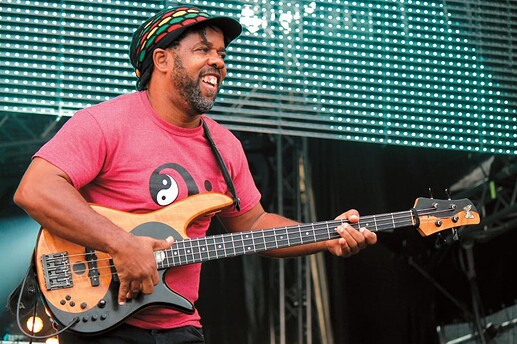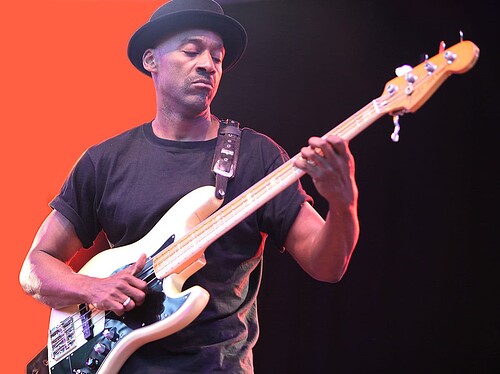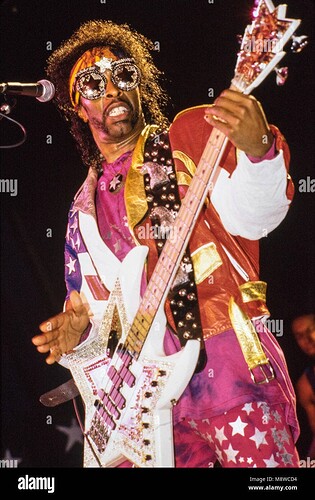I currently play a PJ action bass, but I am looking at getting a Sting Ray bass, and I don’t know if I should get a P bass or a J bass because I want to learn how to play slap but I don’t know if its worth it.
I’m not a Stingray owner but you can play slap on any of those models you mentioned - P, J or P/J… and of course Stingray.
The answer above by @Bassic is on the money.
If you want to get a Stingray because of how it looks and feels then go for it.
Two price points. The Sterling stuff is the more affordable range made in Indonesia. The Ernie Ball basses are made in the US with a price tag to match.
Although it’s cheaper the Sterling line is generally well regarded as far as build quality.
Slap it… ![]()
![]()
100% not joking here, I own two instruments made in Indonesia that are both higher quality than any MIA Fender I have played.
If you want a Stingray, that is the reason to look for a Stingray. There really is nothing special about them for slapping.
If you already own a P/J… you’ve kind of already got your P and J types covered.
And if you just want that Stingray sound, there are lots of other options. Quite a few other brands with a humbucker in the Stingray sweet spot, with or without onboard preamp.
The Sire Z series springs to mind. (I’m eyeing a Z7 fretless.) My primary bass is a Reverend Raymond (which was only made for one year). Which is a Ray-type with an additional blade pickup, and passive electronics.
That’s a fact, Jack.
If you are looking for a Fender style P, J or P/J, look at G&L’s basses. That’s where Leo Fender wound up. The Fullerton Deluxe series basses are made in Fullerton, CA and are priced accordingly. My Fullerton Deluxe Fallout (short scale) is superb. But don’t overlook their Tribute series made in Indonesia. I’ve owned a couple, and they were very well made. My Schecter Banshee was also made in Indonesia. It was flawless when I unboxed, with a surprisingly good setup after the long over-water journey.
I wouldn’t trade my American-made EBMM Tim Commerford passive short scale Stingray (#23 of 50) for anything. I’ve been wanting a 'Ray since I saw/heard Paul Denman play one with Sade in 1984. It took me almost 40 years, but I finally found one.
huge stingray/MM fanboy. but my real answer for you is get a bass that excites you, makes you want to pick it up and play it. any that you mentioned are quality instruments and there are a ton more (at all price points btw).
Well StingRay would give you a head start when it comes to slapping. It’s the bass for it for sure. but you can slap with any bass. I do that on my short scale Sterling Stingray fretless with Tapewound and it sounds pretty awesome.
A Stingray is a good bass for starting out. I have a Sterling Ray SS4 short scale, and it feels so nice to play.
But, Sire is also a nice bass to start out, as is Squier (CV and Paranormal lines) these days. Yamaha B234 and B434, and TRX 304 too.
We live in a good time to learn bass. So how do you decide?
Pick the one that makes you the most excited to play.
I love my stingray. the tone is fabulous, build quality is exceptional…it’s a very fine instrument.
That being said, you don’t have to spend that kind of $ unless you really want that signature tone. IMO you can find fantastic basses in the $750 range.
My Sterling Ray SS4, which is a Stingray body and neck, was $699 before. Not exorbitant.
yes if he’s talking about an actual EBMM stingray, it’s a lot of money. if he’s talking about sterling (SBMM) they are of course much much cheaper. i personally would not do the absolute cheapest intro $250 one simply because the next step up one is only $350 and you get a lot more.
Sterling short scale probably has the best electronic and pickup of most of the Stingray you’ll find regarding where they are made. Passive with volume boost and series/ parallel/ single coil switch.
The closest thing you can find would be the USA made Sterling Series.
I bought it thinking I would need to change the pickup, but it’s perfectly fine
I would politely and mildly contend this point - I think that the position and monster output of a Stingray is excellent for slap.
I say this because my main bass that I dedicated my slap-life to is modeled after a Stingray.
I also have a P bass and a J bass. They sound very different.
The P/J and J are good for slap, but it always sounds like a more mellow, jazzier (Marcus Miller) slap to me.
The Stingray has that Flea/Brothers Johnson raging attack to it that - I think - makes it a unique and singular slap machine.
But to @BeerBaron’s point (and others) you can absolutely slap on the other basses.
If you need to learn the technique, that can be done on any instrument.
Once the technique is learned and you want to check out different ways to express it, that (I think) is where the Stingray will offer more options as a different voice than the bass you have now.
Completely agree.
I think I even mentioned Sir Marcus of Miller in my post.
I just saw that word special, and - truly - I do think that Stingray has a special sauce for slap.
That’s all.
I’d certainly never argue that slap bass is relegated to a certain bass or person, or style or anything.
But if you ask me, “does a Stingray have something special for slap bass?” I’d answer yes.
And I don’t think that answer disparages Bootsy, or Victor, or Marcus at all. I certainly hope you didn’t take it that way.
Not at all. And I’m not disparaging Rays at all. My primary bass is a Ray-type (Reverend Raymond). I love the tone on it.
I’m just keeping this purely in context of what the OP should do. That there’s nothing deficient about his current P/J setup for learning to slap.
If you want to slap, slap.
If you want to play a Ray, get a Ray.
The two are separate and totally valid things. He doesn’t need to worry about getting a specific bass to play slap like he wants to. (Unless like - it’s got a fat pickup cover on it that will get in the way.)




